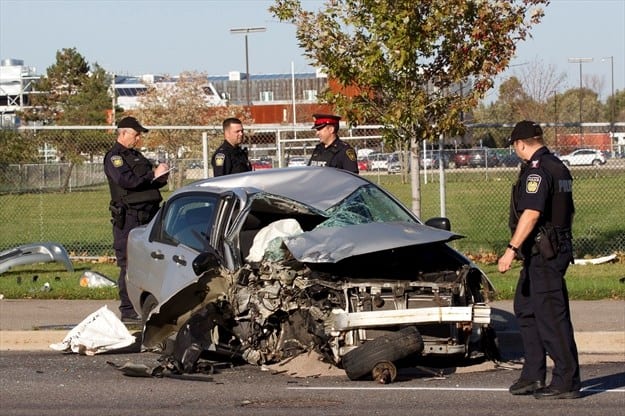
Dardoor Auto: Have you ever been feeling more concerned about getting in a car more now than ever? In 2016, Transport Canada estimated that 40,300 individuals died in car accidents––a 6% rise from 2015. The previous year (2019) saw a similar increase in fatal crashes: 7%. In just two years, that means we have seen a 13% rise in car accident fatalities, the most significant jump in more than 50 years. What is causing this, and what can be done to minimize itit?
What Is Causing The Increase In Deadly Car Crashes?
There are many different factors at play. Some government officials argue that one of the most significant factors is the lax enforcement of and laws on the books that cover drunk driving, speeding, and seatbelt laws. Many provinces in Canada do not consider the lack of wearing a seatbelt to be an offence an officer can pull someone over for, and speed limits around the nation are rising. Given that about half of all deadly car crashes happen to a victim that is not wearing a seatbelt, and about a third of disastrous accidents involve a driver who was impaired by drugs and alcohol, the logic that these all contribute to the deadly car crash epidemic may very well hold true. As the CBC reported, speeding may play a role in all of these cases. Transport Canada stated in their official website that:
-
-
- In 2018, the number of motor vehicle fatalities was 1,922; up 3.6% from 2017 (1,856).
- The number of serious injuries decreased to 9,494 in 2018; down 6.1% from 2017 (10,107).
- The number of fatalities per 100,000 population increased slightly to 5.2 in 2018 (from 5.0 in 2017), yet is still the second-lowest on record.
- The number of fatalities per billion vehicle kilometres travelled slightly increased to 4.9 in 2018 (from 4.8 in 2017); also the second-lowest recorded (Source: Transport Canada).
-
Transport Canada also stated that:
“Of the estimated 2,186 fatalities in 2010, speeding was cited as a contributing factor in about 25.0%, down from 27.4% in 2006.” (Source)
In addition to the law and order reasons for the increase, there are also simpler ones. Since the economy has been continuing to grow, people are driving more to their jobs and on family trips and joyrides. But that does not justify the increase in deadly accidents, because the number of deadly crashes per mile driven is also on the rise. In addition to the traditional sources that can divert one’s attention from the road, such as eating, speaking to passengers or chatting on the cellphone, new dangers are also emerging as people become more reliant on technology. Distracted driving from new sources––think to scan Twitter, Facebook, Instagram, or Snapchat on your phone––have also been accused of part of this increase.
Are There Times That Lethal Car Crashes Are Most Likely?
Hospital visits to the emergency room are often highest around the holidays, and likewise, lethal car accidents correspond to times when risky behaviour is often overlooked. July 1st, in addition to fireworks, brings with it the highest number of fatal car crashes. Second to July 1st is January 1st, presumably because drivers are either sleep deprived or still walking off the effects of a midnight toast of champagne. Indeed, nearly half of either the drivers or the victims of deadly crashes on both of these dates have blood alcohol levels over 80 milligrams in 100 millilitres (0.08), which is the legal BAC limit in Ontario. Driving with BAC over 0.08 is a criminal offence. You are about 12% more likely to get in a deadly car crash on July 1st than on any other day of the month.
What Can We Do To Stop Lethal Car Crashes?
There are several possible solutions in the works, and none of them are without controversy. The Transportation Safety Board of Canada has started a highly ambitious initiative that is aimed at eliminating deadly car crashes in the next 30 years. This initiative is future-looking and mostly relies on the assumption that self-driving cars which are also “extremely safe and self-efficient” will soon rule the roads, a possible future risk is also not so sure.
Without requiring massive technological advances, there are other control measures drivers advocates are backing. Transport Canada advocates for smart ignition locks that keep drunk drivers from driving their cars, mandatory seatbelt laws, and banning the use of all cell phones for drivers.








